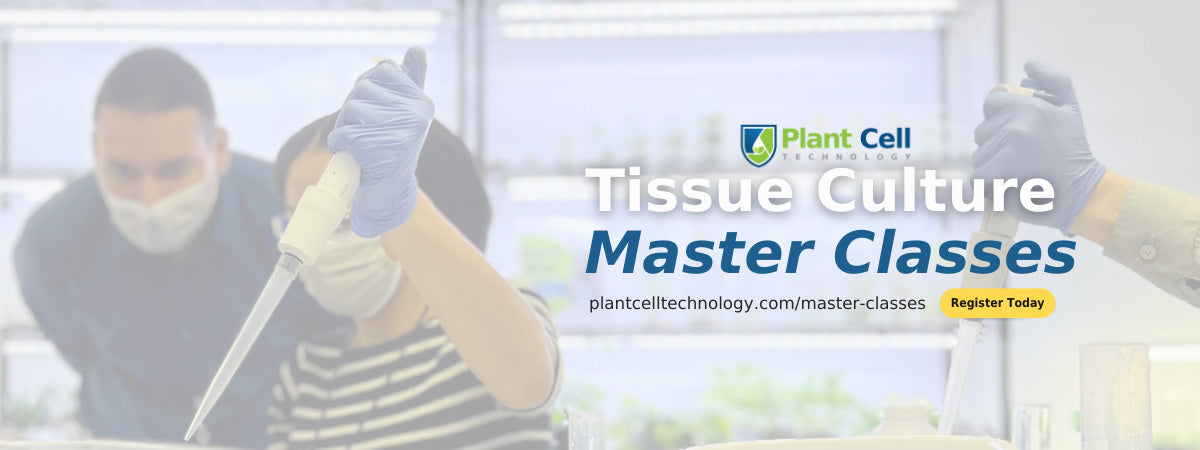
Meristem Culture: Definition, Procedure, Benefits, and Applications
As a content and community manager, I leverage my expertise in plant biotechnology, passion for tissue culture, and writing skills to create compelling articles, simplifying intricate scientific concepts, and address your inquiries. As a dedicated science communicator, I strive to spark curiosity and foster a love for science in my audience.


What is Meristem Culture?
Meristem culture is a type of tissue culture technique used in labs to eliminate viruses and other parasites while growing plants in vitro. They either use the growing tips of plant shoots or roots—sites containing meristematic cells—for the culturing process. The technique was first reported by scientists named Morel and Martin in the year 1952.

Figure: An illustration of the meristem.
Meristem cells are undifferentiated plant tissues having the power to divide. They can develop any other types of cells or organs in plants. Because the meristem cells have high metabolic activities and a high concentration of auxin, virus multiplication is not possible in that area. The four types of meristematic cells include the shoot apical meristem, root apical meristem, intercalary meristem, and floral meristem.
Meristem culture is performed by dissecting the meristematic region from plants (such as shoot tips) and transferring it to a suitable growth medium, containing nutrients, vitamins, and plant hormones. It encourages cell division and tissue differentiation in cultures.
Meristem culture has a spectrum of applications, including producing disease-free plants, regeneration of whole plants, producing transgenic plants and haploid plants, crop improvement, and germplasm conservation.
In this article, we will learn more about the steps to perform meristem culture, their applications in labs and industries, and future possibilities in the area.
Steps To Perform Meristem Culture
The basic steps of performing meristem dissection are given below:
- Obtaining source of the meristematic tissue: Choose which source you want for your tissue culture processes. For example, is it the shoot tip or the root tip? Though meristem cells are best to work prevent viral contaminants from entering your culture through the plant's tissue you use, it’s better to ensure that the plant is free of any disease to provide an extra level of safety to your plants.
- Sterilizing the plant material: Cut off the source from the mother plants and sterilize it using suitable chemicals, such as detergents like Tween 20 or bleach. It’s mainly because the meristem cells are too small to sterilize. Thus, cleaning them when they are attached to the shoot, ensures they are not damaged and are cleaned properly for their uses in cultures. After sterilization ensure the tissue is properly rinsed using sterile distilled water to remove all the traces of chemicals used in the sterilization process.
- Cutting off the meristematic tissue from the source: Before moving to the dissection process, you should have all tools and equipment sterilized. Then, take the plant material, place it under a microscope, locate the meristematic tissue, and start cleaning any extra material around it slowly with stable hands. Use a sharp scalpel or needle to prevent any damage to the meristem cells.
- Transfer meristematic tissue to a suitable growth medium: Transfer the meristematic tissue to a container containing a sterile growth medium to encourage cell division and tissue differentiation. The tissue must contact the surface of the medium.
Then, place the culture under controlled optimum conditions, such as appropriate light, temperature, and humidity conditions. And, monitor them regularly under the microscope to observe their development and detect any contamination or abnormalities at an early stage.

Figure: Diagrammatic representation of the steps of meristem culture.
Applications of Meristem Culture
Meristem culture is a powerful technique used in genetic engineering, agriculture, horticulture, and plant research applications, including:
- Production of disease-free plants: Meristem cultures are extensively used in plant labs and industries to produce disease-free plants. It’s done by isolating meristematic cells from the desired mother plant and introducing it to suitable culture media for regeneration. The plants produced through this technique offer an excellent approach to transporting plants anywhere in the world, without transmitting diseases.
- Genetic engineering of plants: The meristem shoot tips are well-qualified by scientists for their application in agrobacterium-mediated genetic transformation. It allows scientists to regenerate plants having desired characteristics, such as herbicide tolerance, resistance to diseases, or better nutritional content than wild plants.
- Plant conservation: In addition to crop improvement and clonal propagation, meristem culture has applications in germplasm conservation of rare and endangered plants and germplasm exchange.
- Basic research: Meristem culture has a range of applications in plant labs to study plant development and the process of cell division and differentiation. Further, because of their ability to divide and form any cell type, they have been widely used to understand many cellular mechanisms.
HOW CAN PLANT CELL TECHNOLOGY HELP YOU TO EXPLOIT MERISTEM CULTURE TECHNIQUE IN YOUR PLANT BUSINESS?

Tissue culture, including meristem culture, has a major role to play in producing healthy plants and preserving elite varieties. However, the process is not that easy when you don’t have experience in it. Moreover, it will take months for you to create or develop your own procedure—which will require mixing different types and concentrations of chemicals to induce division and differentiation in tissues.
Imagine how much time and money you’ll be required to invest in it!
That’s why we have brought you our comprehensive “Cannabis Tissue Culture Masterclass”. It will be a 3-days class conducted in every other months. The class will be conducted by legends in the Cannabis Tissue Culture Industry, Bill Graham or Adam.

In this class, you won’t only learn how to produce meristem culture and preserve the genetics of your plant, but a range of other topics, including Pathogen remediation, sterilization techniques, synthetic seed technology, and many more.
Here’s our complete curriculum
This a one of the most popular MasterClass, for which booking has already been started. And, for one-on-experience with our tissue culture expert, only a limited number of seats are available.
So, if you are interested in giving a boost to your Cannabis business, then book your seats TODAY!
Blog Categories
View by Level
Popular Blogs

How Samantha Bridges the Gap Between the Nursery and the Lab
The Introduction Building a tissue culture program from the ground up requires more than just scientific knowledge—it requires the grit...
Read More
Understanding The Synthetic Seed Technology
Introduction Let’s be honest: traditional plant propagation can be a logistical nightmare. If you’re working with recalcitrant species—those stubborn plants...
Read MoreSubscribe to Our Newsletter







Join the conversation
Your email address will not be published. Required fields are marked